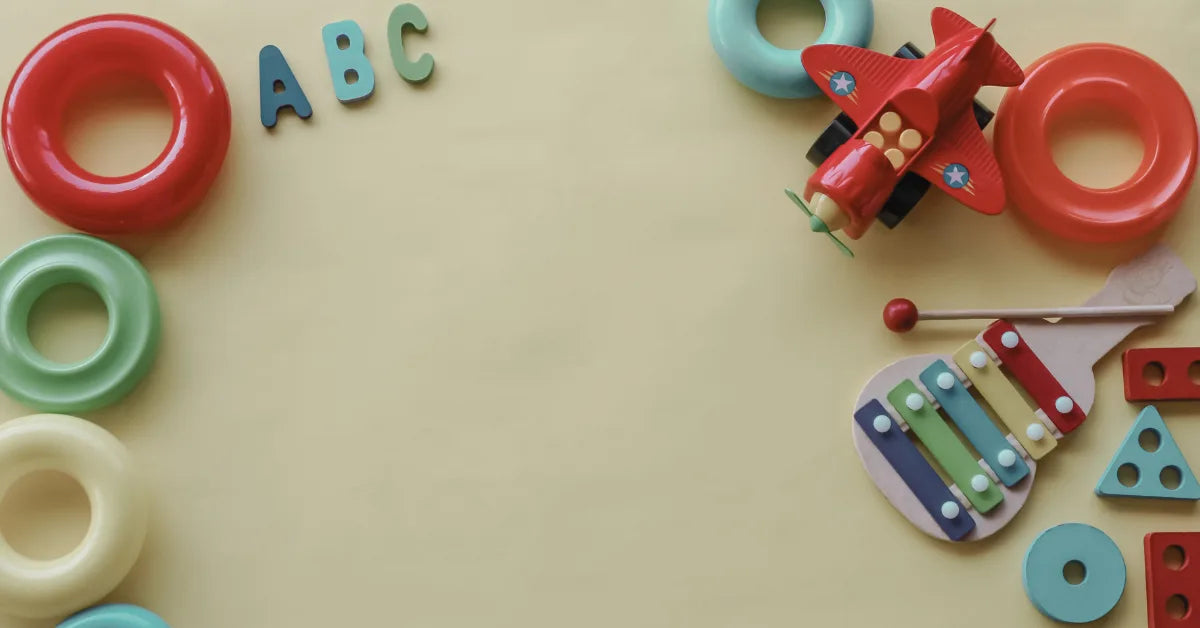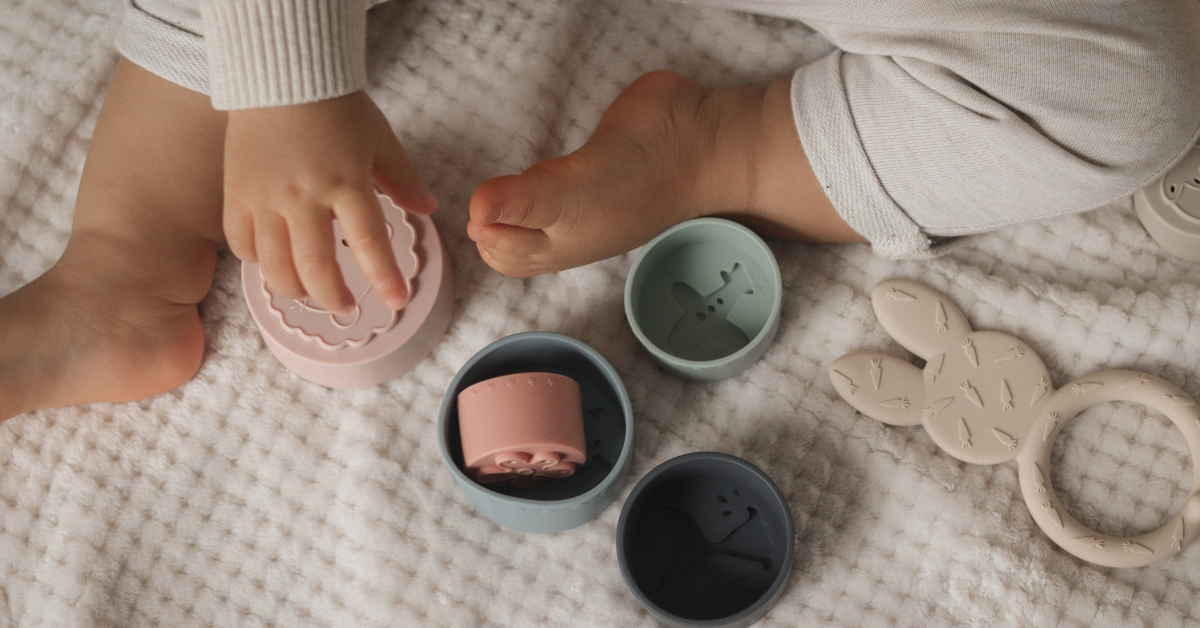Article: Are plastic toys bad for babies?

Are plastic toys bad for babies?
Toys are an integral part of babies and toddlers' lives, providing entertainment and stimulation for their development. However, an important question is increasingly being asked by modern parents: are plastic toys bad for babies?
With growing concerns about chemicals, safety and environmental impact, many parents are turning to safer alternatives, like silicone toys.
This article explores the potential risks associated with plastic toys, safer alternatives, and features some Ploomie brand products, specially designed for the safety and well-being of little ones.
Risks associated with plastic toys
Plastic toys are ubiquitous in homes. However, some types of plastic can pose health concerns for babies, especially when exposed to potentially dangerous chemicals. Here are some common risks:
1. The presence of harmful chemicals
Many plastic toys, especially those that don’t meet European safety standards, may contain chemicals like bisphenol A (BPA), phthalates, and lead. BPA, for example, is an endocrine disruptor that can interfere with a child’s hormonal system. These substances are of particular concern when babies chew or suck on their toys, a common practice among infants who explore their environment with their mouths.
2. The risk of suffocation
Hard plastic toys can break into small pieces, posing a choking hazard. Additionally, some plastic toys contain small parts that can be easily swallowed by a curious baby. Poorly designed or cheap toys are often the most dangerous.
3. The environmental impact
Aside from health concerns, plastic toys also pose environmental problems. Most plastics are not biodegradable and can take centuries to decompose. Additionally, plastic production relies on non-renewable resources like oil, which contributes to environmental pollution.
Safer alternatives: food-grade silicone
Fortunately, there are safer alternatives to plastic toys. Silicone, especially food-grade silicone, is becoming increasingly popular among parents who are concerned about their children’s safety. Here’s why silicone is a great alternative:
1. Free from harmful chemicals
Food grade silicone is non-toxic and free of BPA , phthalates, and PVC. Unlike plastics, it does not release chemicals when exposed to heat or when chewed. This feature makes it especially safe for babies who tend to put everything in their mouths.
2. Softness and flexibility
Silicone is soft and flexible, making it safer for little ones. Unlike hard plastic toys, it doesn't break into small pieces or have sharp edges. Silicone toys are also very durable, making them less likely to break or get damaged.
3. Ease of cleaning
Silicone toys are non-porous, meaning they do not absorb liquids and bacteria. They are also easy to clean , being able to be sterilized in boiling water or put in the dishwasher. This ensures that the toys remain clean and hygienic, even after many uses.
Ploomie products: safe and elegant alternatives
At Ploomie , we understand the importance of providing safe, durable and aesthetic products for modern parents. Here are some of our silicone products that are a great replacement for plastic toys and accessories.
1. Ploomie Silicone Teething Rings
Teethers are often made of plastic, but silicone is a much better option for teething babies. Ploomie teethers, made of food-grade silicone , are gentle on gums and can be sterilized in warm water to ensure optimal hygiene. Plus, their sleek, modern design appeals to both parents and little ones.
2. Ploomie Silicone Spoons
Hard plastic spoons can be dangerous if your baby falls while having them in their mouth. At Ploomie, our spoons are designed entirely in soft silicone to prevent this type of accident. They are also ideal for baby's first food experiences, as they are soft and pleasant to use.
3. Ploomie Silicone Training Cups
Training cups are essential for helping little ones transition from bottles to cups. Ploomie's silicone cups are designed to be soft and durable, reducing the risk of breakage or injury. They're also easy to clean, making them a handy accessory for busy parents.
4. Ploomie Silicone Bibs
Plastic bibs can be stiff and uncomfortable for babies. Ploomie silicone bibs , on the other hand, are soft and flexible, while providing excellent protection against stains and spills thanks to their drip pocket. They can be cleaned in a snap, by hand or in the dishwasher.
Why choose silicone toys over plastic?
As parents, we all want the best for our children. Choosing silicone alternatives to plastic toys has many benefits. Not only are you protecting your baby from potentially harmful chemicals, but you are also investing in more sustainable and environmentally friendly products. Silicone is durable, non-toxic and easy to maintain, making it an ideal choice for modern families.
So, are plastic toys bad for babies? The answer is that they can be, especially if they contain dangerous chemicals or are poorly designed. However, there are safer alternatives, such as food-grade silicone products. At Ploomie , we pride ourselves on offering a range of safe, stylish and practical products designed to meet the needs of parents who care about their children’s well-being. From teethers to spoons, sippy cups and bibs, silicone is a perfect solution for accessories that are both functional and safe.



